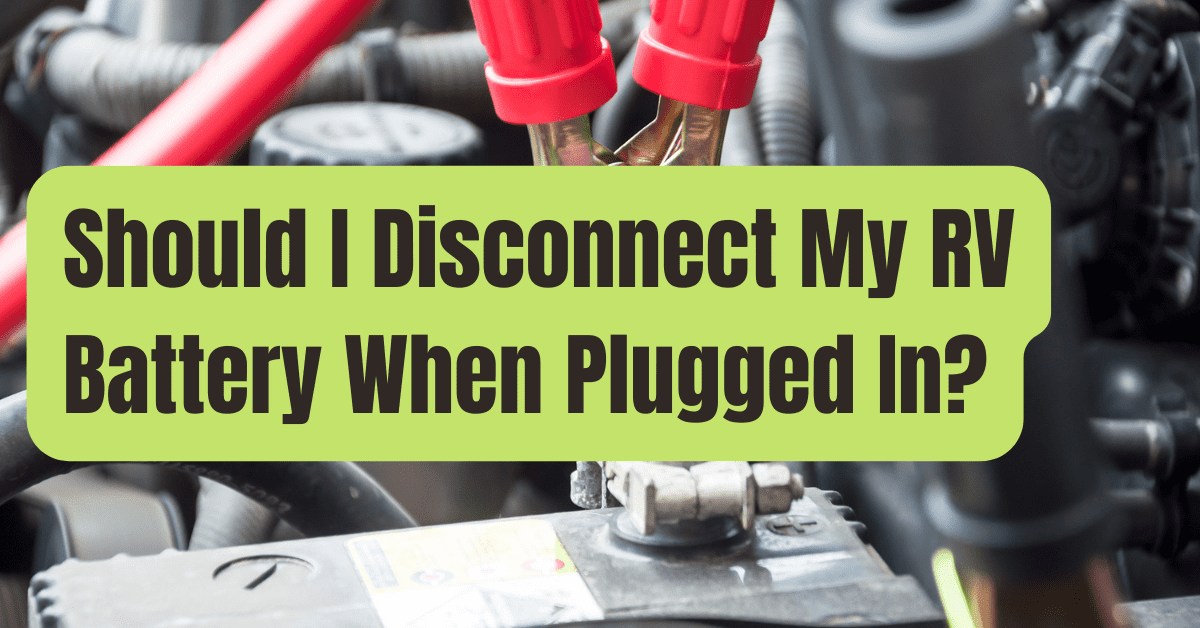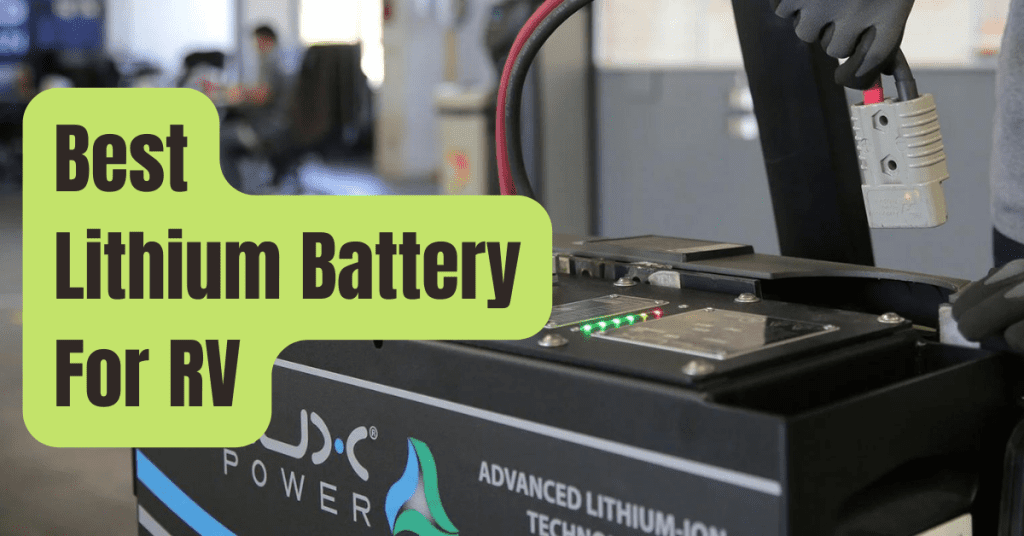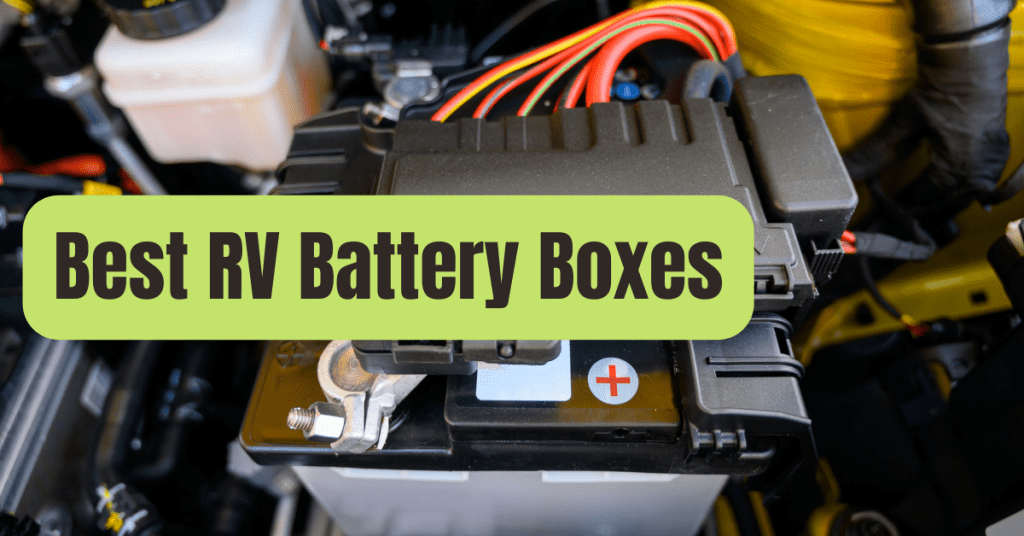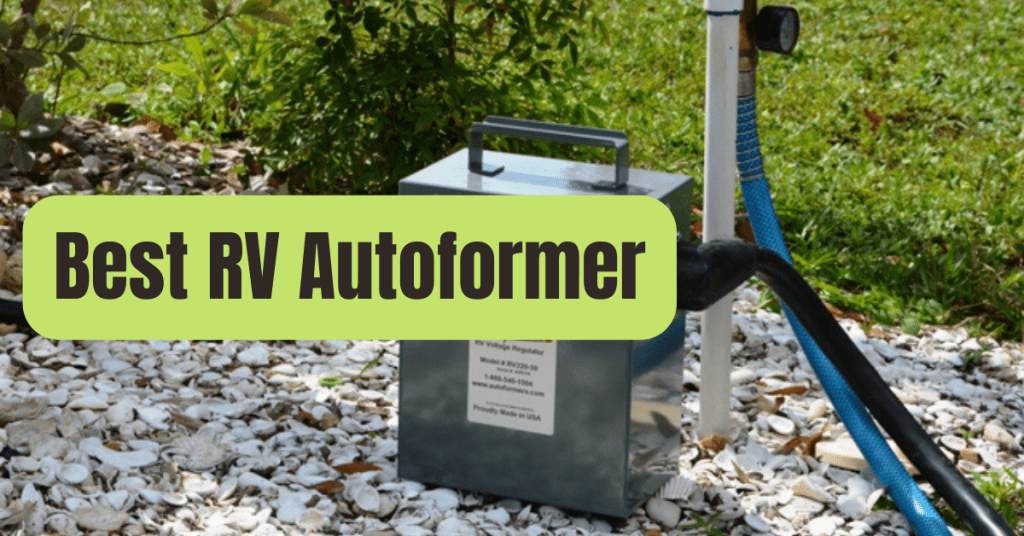Do I need to unplug my battery before plugging into shore power when I pull into the RV park? you may be asking yourself.
Considering that your RV already has a battery bank, is having two sources of power available simultaneously dangerous?
When hooked into shore power, your battery often doesn’t need to be removed.
But in a few exceptional circumstances, you may choose to cut the connection.
Let’s first take a closer look at your RV’s electrical systems.
The appropriate time to unplug your RV batteries will next be discussed.
The AC and DC Electrical Systems in Your RV
There are two distinct electrical systems in your RV, one for AC power and the other for DC power.
But how do they differ?
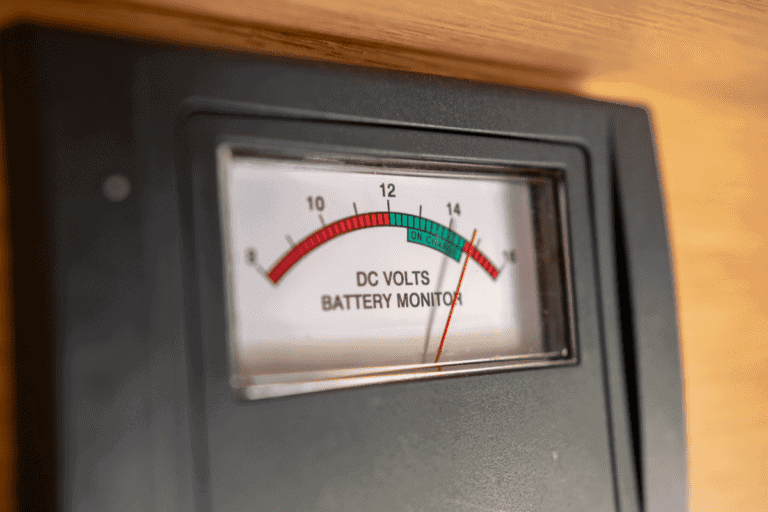
#1. DC Power
Direct current is referred to as “DC.” DC power only allows one direction of electrical flow.
DC power is used by the majority of batteries, including those in your RV.
Additionally, DC electricity typically has a voltage of 12 volts.
The battery bank in your RV supplies power to the DC electrical system.
The lights, slides, and several appliances in your RV are all powered by this system.
#2. AC Power
The term “alternating current” (AC) is used.
When using AC power, the current quickly switches back and forth 50 to 60 times per second.
The voltage of AC electricity is around 120 volts in North America (and most of South America).
In a normal house, AC electricity is what exits the wall outlets.
To function effectively, the majority of consumer devices need AC power.
Most often, a shore power connection is used to power the AC power system in your RV.
Your consumer gadgets as well as other non-DC equipment in your RV may be powered by this method.
#3. Inverters & Converts
Converters and inverters are two additional crucial parts of your electrical system that we should highlight.
These convert power from DC to AC or the other way around.
Converters convert AC electricity to DC power, and the majority of recreational vehicles have one installed.
Your converter can power your DC equipment and charge your batteries when it is connected to shore power.
Inverters convert direct current (DC) to alternating current (AC).
They are still widespread and highly helpful even if they are not often included with RVs.
Even without a shore power connection, the inverter enables you to utilize the electricity from your batteries for your AC gadgets.
When Ought My RV Battery To Be Disconnected?
So, when you plug in to shore power, should you unplug your RV battery? Most of the time, no.
Although being hooked into shore power isn’t always a good idea, there are specific situations when you should disconnect your RV’s batteries.
Your RV’s converter uses the electricity from the shore outlet to charge your batteries while you are plugged in.
Additionally, it directly powers DC-powered gadgets, keeping your battery from being discharged.
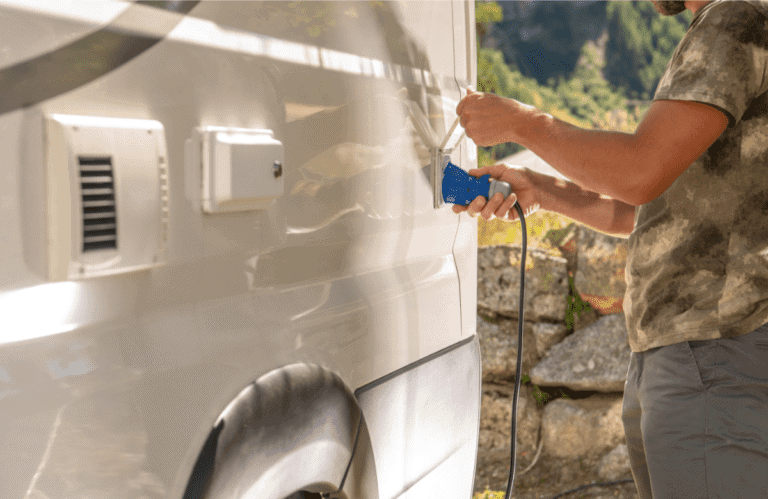
Three Reasons To Unplug Your Battery
When using shore power, there are only three legitimate reasons to disconnect your battery:
- An outdated, ineffective converter without overload protection is in your RV. In this situation, unplugging the battery will stop it from overcharging.
- You wish to use a different smart charger to charge the battery.
- Disconnecting your battery while using shore power after it has been charged will help it last a little longer.
Your batteries should continue to run with a shore power connection in all other circumstances.
However, it doesn’t follow that there are never any valid reasons to unplug your batteries.
In actuality, a lot of RV batteries either ship with a battery disconnect switch or have one added later.
A battery disconnect switch, however, is not necessary.
The primary purpose is to lessen battery depletion while your RV is idle for an extended period of time.
Even when they are turned off, your devices continue to use a tiny amount of power.
This may be avoided by disconnecting the battery, albeit the batteries will still deplete but much more slowly.
Therefore, disconnect your batteries if you anticipate being gone from your RV for a lengthy time, such as when you store it.
The Bottom Line Is That When Plugged Into Shore Power, You Do Not Need To Disconnect Your RV’s Batteries.
The electrical system in an RV might be a little daunting, so it never hurts to be extra cautious.
However, there’s no reason to fear in this instance.
Keeping your batteries linked when you are hooked into shore power poses neither a risk nor a problem.
It’s really quite typical, and your RV probably has everything it needs to deal with it.
In order to charge your batteries and operate your DC equipment, your RV’s converter will use the AC electricity from your shore connection.
Should I Disconnect My RV Battery When Plugged In Videos Suggestions From Youtube
All About RV’s

